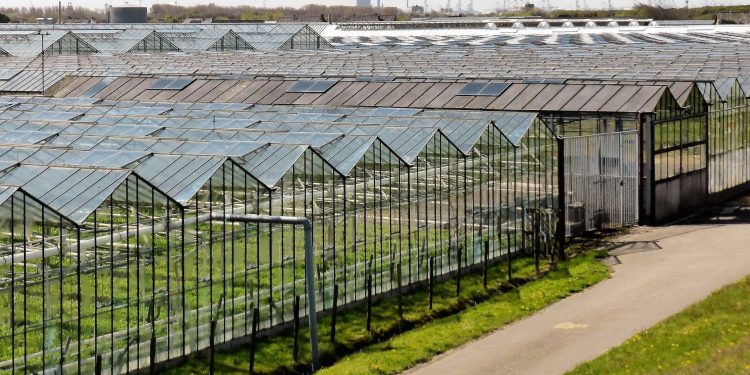#UNexpert #greenfarming #smartagriculture #cropprotection #sustainableagriculture #technologyinagriculture
As part of the FAO project “Smart Farming for Future Generations,” a United Nations expert in agrochemical use conducted a greenhouse farming training in Fergana. The training focused on comprehensive pest and disease management in greenhouse cultivation, emphasizing sustainable practices and the use of advanced techniques. This article explores the key insights shared during the training and their potential implications for agricultural development.
In a recent training session held in Fergana, approximately 50 participants took part in an educational program on greenhouse farming techniques led by a renowned UN expert. The training was organized under the FAO project “Smart Farming for Future Generations,” aiming to promote sustainable agriculture practices and innovative approaches to crop protection.
The expert shared insights on combating pests based on cutting-edge international experiences. Stressing the importance of considering the developmental cycles, balance, and harmony among plants, insects, microorganisms, and nutrients, he highlighted the need for a protective approach that safeguards crops while preserving the ecosystem.
Presently, it is crucial to cultivate plants that are resistant to diseases and pests, while allowing the environment to regenerate naturally, without excessive human intervention. The expert emphasized the necessity of reducing the reliance on synthetic fertilizers and pesticides while simultaneously increasing productivity. This approach ensures that consumers can access healthy food while minimizing the use of chemical agents.
To achieve these goals, the expert proposed the adoption of new covering materials for greenhouse farming, such as polyethylene films with special additives measuring 180-200 microns in thickness. These additives have the capability to absorb ultraviolet radiation, enhance the film’s durability, and prevent the formation of water droplets on the inner surface of the greenhouse.
For cooling purposes, the expert suggested using shading nets instead of the current practice of clay spraying. Additionally, the implementation of traps and mosquito nets could improve air circulation within the greenhouse.
Furthermore, the UN expert recommended Uzbek farmers to install disinfection floor coverings in their greenhouse facilities. He also emphasized the importance of clearing the surroundings of weeds and implementing double-door systems to effectively combat bacterial contamination.
The expert encouraged the integration of digital technologies into greenhouse farming. For instance, the installation of sensors to monitor soil moisture, solar radiation levels, humidity, and air temperature, coupled with suitable software, would enable the remote control of microclimate conditions and irrigation systems, even through mobile devices.
The training session provided valuable knowledge and practical guidance to agricultural professionals from the AKIS Center of Agricultural Knowledge and Services in the Fergana region. Representatives from the Plant Quarantine and Protection Agency, Fergana State University, and the Andijan Research Experimental Station for Vegetable and Melon Crops and Potatoes also participated.
The insights shared by the UN expert during the training have the potential to revolutionize greenhouse farming practices in Fergana and beyond. By promoting sustainable and environmentally friendly approaches to pest management and crop protection, farmers can reduce their reliance on harmful chemicals, conserve resources, and enhance the quality and safety of their produce. The integration of digital technologies further empowers farmers to optimize their cultivation processes and maximize productivity.
The adoption of these advanced techniques and strategies is a significant step towards achieving sustainable agriculture, ensuring food security, and mitigating the environmental impacts associated with conventional farming practices.
The UN expert’s training on greenhouse farming in Fergana highlighted the importance of sustainable agricultural practices, effective pest management, and the integration of digital technologies. By embracing these approaches, farmers can enhance productivity, reduce environmental risks, and provide consumers with healthier food options. The knowledge gained from this training will contribute to the advancement of greenhouse farming and the overall development of the agricultural sector in the region.












